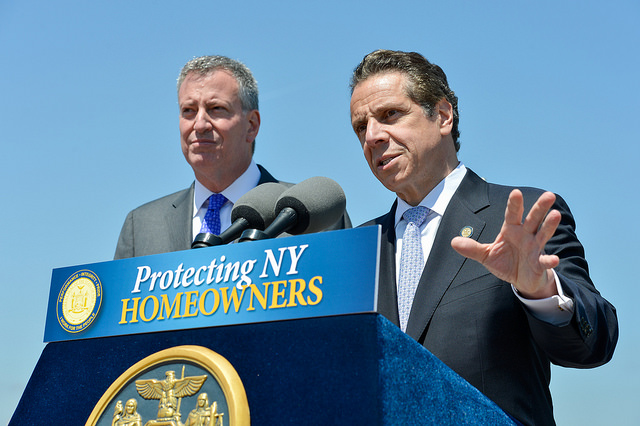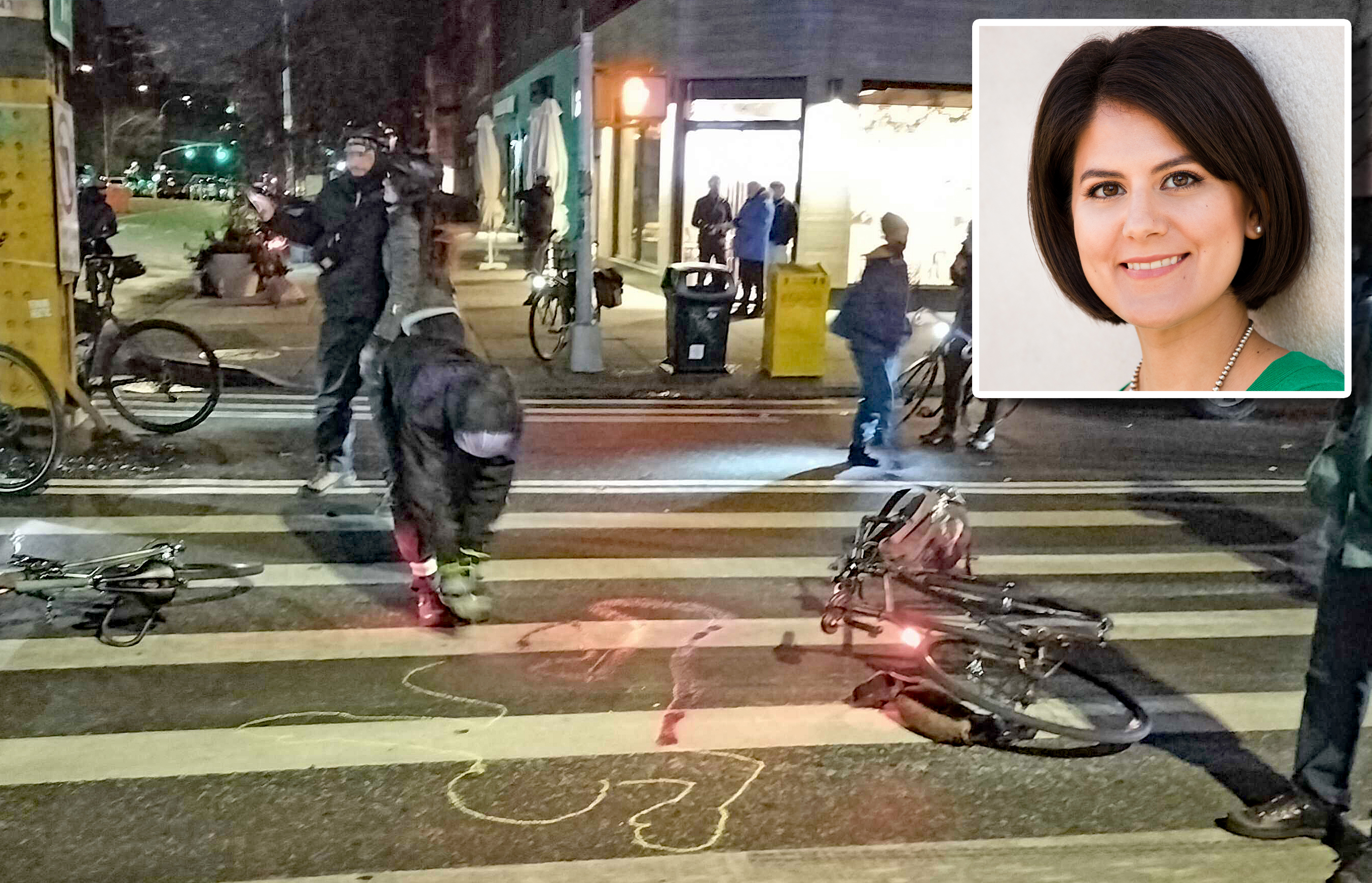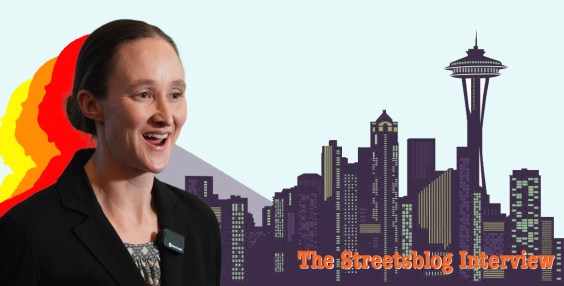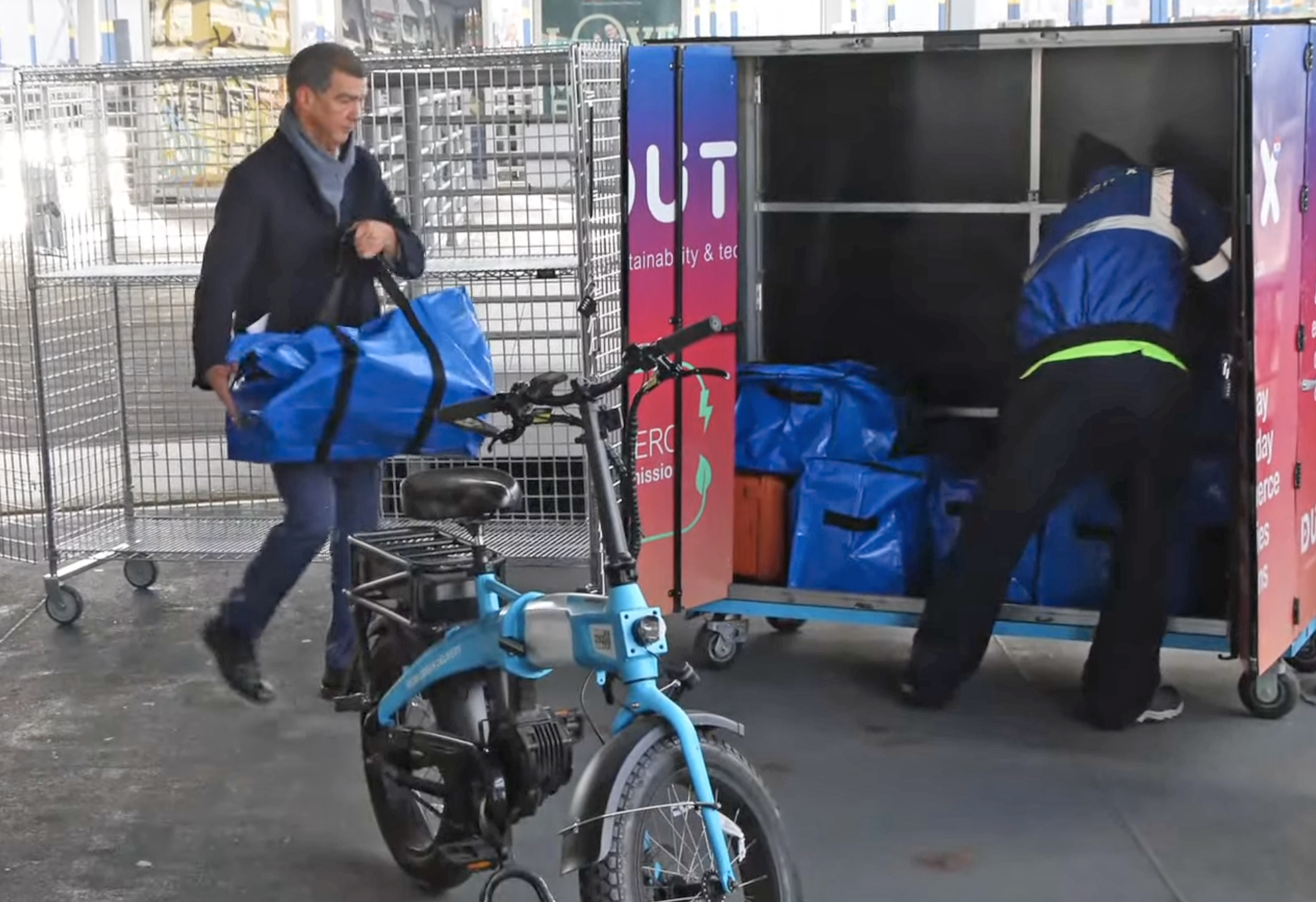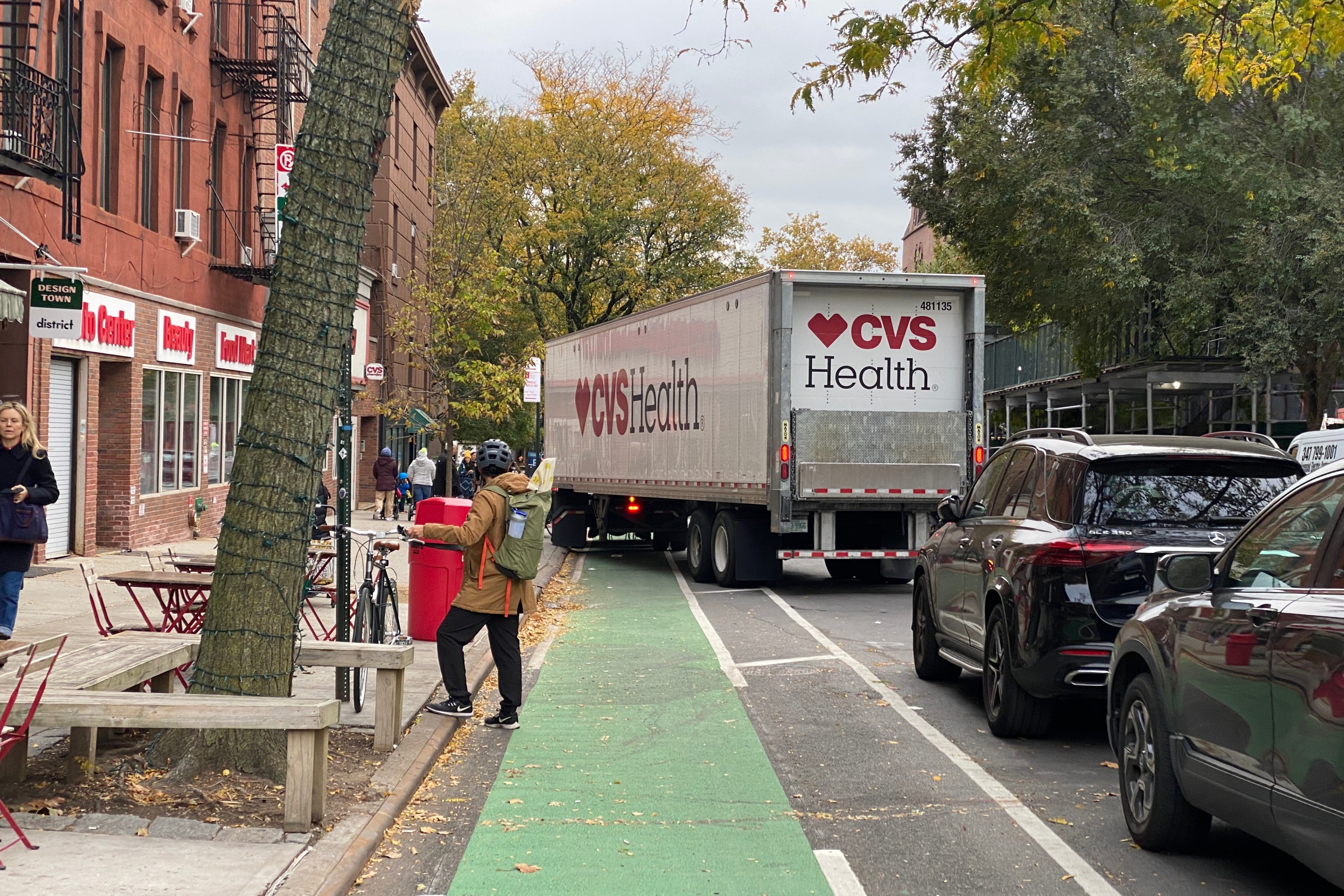MTA chief Joe Lhota delivered his emergency plan to improve subway service yesterday, and on the question of revenue, he spoke with Governor Cuomo's voice. The $836 million price tag for immediate operational and capital improvements should be split between the state and the city, he said.
When Mayor de Blasio refused to go along, the opinion writers at the New York Times and the Daily News had their angle: The governor and the mayor have to put aside their differences for the sake of transit riders.
Cuomo couldn't have asked the editorial pages to deliver a message more advantageous to him. The governor's poll numbers are falling as rapidly as subway reliability, and anything that deflects public pressure from him to de Blasio gives Cuomo more space to avoid making the politically uncomfortable decisions needed to turn around the transit system.
Given the governor's influence over MTA operations, procurement, and budgeting, this is not good for the "beleaguered subway riders" the Times purports to speak for.
If you think transit riders would be well-served by de Blasio meekly going along with Cuomo's demands, look at what happened the last time the two struck a bargain on transit.
At the end of 2015, Cuomo and de Blasio reached an agreement to fill an $11 billion gap in the MTA's five-year capital program, with City Hall chipping in $2.5 billion and the state covering $8.3 billion. The deal was supposed to prevent the MTA from borrowing that $11 billion -- debt that would eventually have to be paid back in the form of higher fares. It represented a significant increase in both state and city support compared to the previous capital program.
There was one problem. While the city committed to using general fund revenue to pay its share, the state weaseled out of specifying where its support would come from. A few months later, Cuomo's executive budget included no new funding for the MTA, and then a few months after that, Albany raised the MTA's debt ceiling by $14 billion. The governor had brazenly trampled his deal with de Blasio to hold down debt service and keep fare hikes in check.
It wasn't as if Cuomo had no options. The governor's 2016 budget directed $3.4 billion in state support to roads and bridges. His economic development initiatives waste piles of money on boondoggles like a $564 million expansion of the Van Wyck and frills like a nine-figure choreographed bridge light show. Maintaining the New York City transit system is exponentially more important than these Cuomo projects, but in a typical year receives less from the state's general fund.
Cuomo reneged on his deal with de Blasio not because his hand was forced, but because he could get away with it.
Only now is Cuomo starting to receive feedback from the political system that he needs to make transit a priority -- no thanks to NYC's representatives in Albany, who've provided no meaningful check on the governor. Cuomo only feels prodded to do something because transit service has gotten so bad, and so many millions of his constituents experience the awfulness of it every day, that it can't be ignored.
The plan that Lhota outlined yesterday, with its focus on fixing signals and staffing up to prevent severe delays, seems like a good start. But it's a sign of how far expectations have fallen that this hasty short-term rescue package is being held up as proof of Cuomo's willingness to tackle the MTA's problems. Peer cities like London and Paris are expanding transit capacity at a clip that puts New York to shame, and we're supposed to be grateful that Cuomo is trying to meet minimum standards of service reliability?
If we want a transit system that provides great service to a large and growing city, we need to hold the governor to a higher standard.
Cuomo should be ordering his deputies to get the cost of capital improvements under control and to implement advocates' recommendations to speed up buses as rapidly as possible. He should be out there rallying state lawmakers to enact toll reform, which would immediately improve bus service by reducing gridlock, while raising revenue that can be plowed back into the transit system. And he should immediately transfer state resources from projects like the bridge light shows, the Van Wyck expansion, and the LaGuardia AirTrain to the MTA turnaround effort.
The mayor should demand to see tangible progress on these fronts as a condition for contributing city funds. Otherwise, Cuomo can pull another bait-and-switch, staving off the collapse of service and buying a year or two of good will with transit riders (or at least less anger), without addressing the underlying structural problems at the MTA.
De Blasio's transit policies are far from perfect. He has his own boondoggles, like the Brooklyn-Queens streetcar, and he should be doing more to prioritize bus service on our streets. But on subway issues, he's finally speaking up and trying to drive a hard bargain with the man who controls the MTA.
That's exactly what he should be doing, and scolding him for it isn't doing transit riders any favors.
